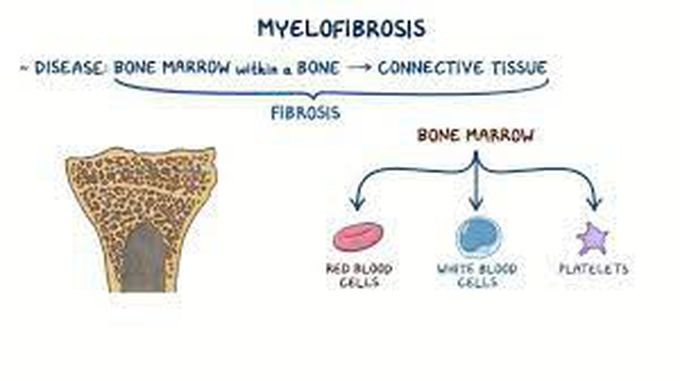


How is myelofibrosis treated?
You don’t need treatment unless you’re experiencing symptoms. Still, your healthcare provider will monitor your condition even if you don’t require immediate treatment. Jakafi® (ruxolitinib), Inrebic® (fedratinib) and Vonjo® (pacritinib) are U.S. Food and Drug Administration (FDA)-approved drugs for treating intermediate or high-risk myelofibrosis. All three drugs are JAK inhibitors that reduce overactive Janus-associated kinase (JAK) signaling. They help relieve some of the symptoms associated with myelofibrosis, including an enlarged spleen, night sweats, itching, weight loss and fever. For most people, treatment goals are to manage conditions associated with myelofibrosis, including anemia and splenomegaly. Anemia treatments Treatments for anemia include: Androgens: Taking androgens, like danazol, can boost red blood cell production. Immunomodulators: Taking immunomodulators can boost your immune system’s ability to fight cancer cells, reducing symptoms. Medications include interferon, thalidomide (Thalomid®) and lenalidomide (Revlimid®). They may be prescribed along with glucocorticoids, like prednisone. Chemotherapy drugs: Taking certain chemotherapy drugs can lessen symptoms related to high blood counts and splenomegaly. Medications include hydroxyurea and cladribine. Blood transfusions: Receiving regular blood transfusionscan increase your red blood cell count if you have severe anemia. Splenomegaly treatments Treatments used to manage an enlarged spleen include JAK inhibitors, immunomodulators and chemotherapy drugs. In severe cases, you may need to have your spleen removed (splenectomy), or you may need radiation therapy to your spleen. You may need radiation therapy to treat extramedullary hematopoiesis (abnormal growth of stem cells outside of your bone marrow).

